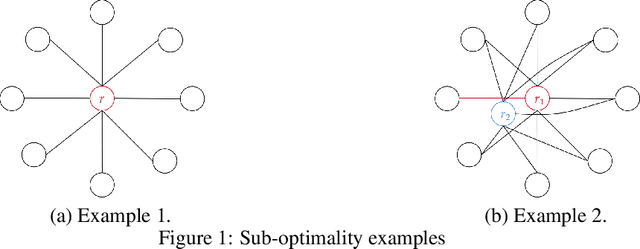Stochastic Online Learning with Feedback Graphs: Finite-Time and Asymptotic Optimality
Paper and Code
Jun 20, 2022


We revisit the problem of stochastic online learning with feedback graphs, with the goal of devising algorithms that are optimal, up to constants, both asymptotically and in finite time. We show that, surprisingly, the notion of optimal finite-time regret is not a uniquely defined property in this context and that, in general, it is decoupled from the asymptotic rate. We discuss alternative choices and propose a notion of finite-time optimality that we argue is \emph{meaningful}. For that notion, we give an algorithm that admits quasi-optimal regret both in finite-time and asymptotically.
View paper on
 OpenReview
OpenReview
 Add to Chrome
Add to Chrome Add to Firefox
Add to Firefox Add to Edge
Add to Edge